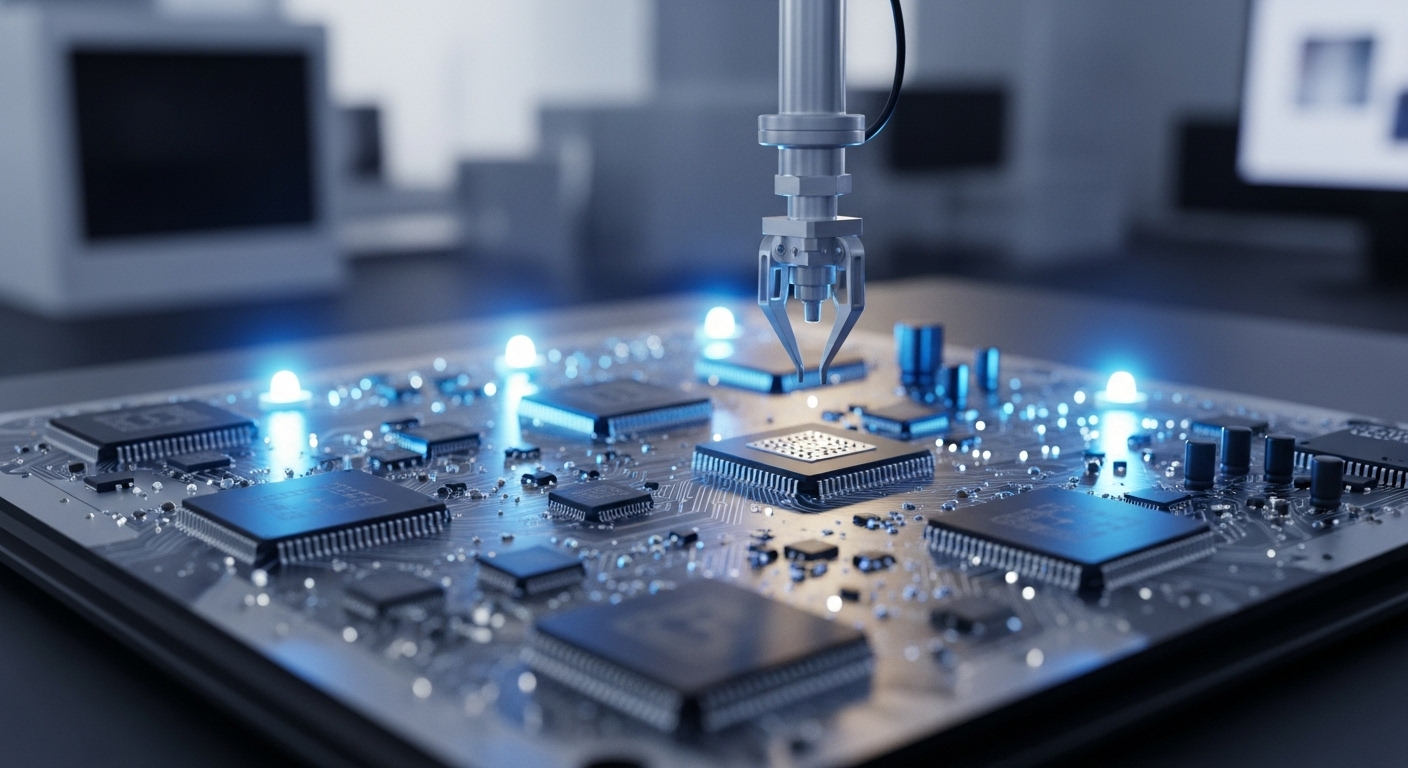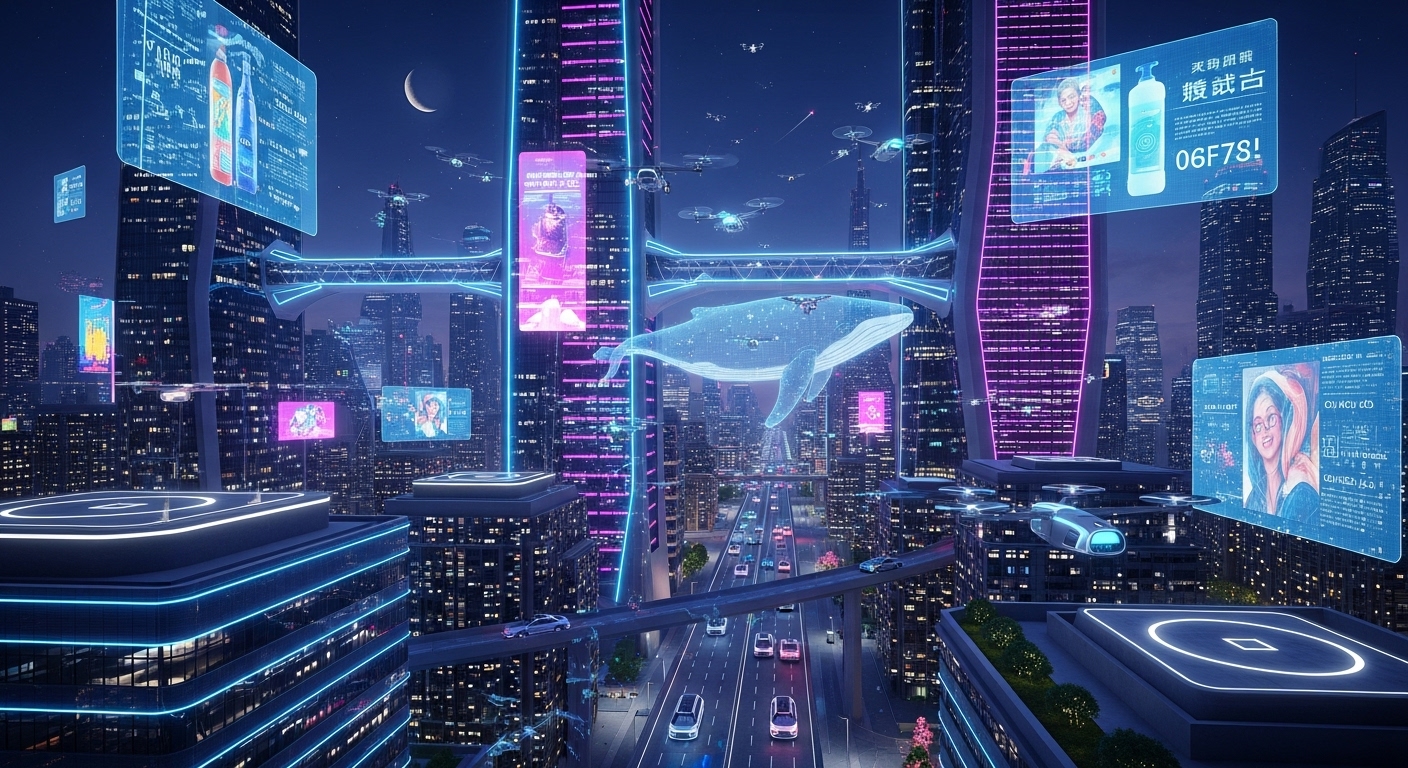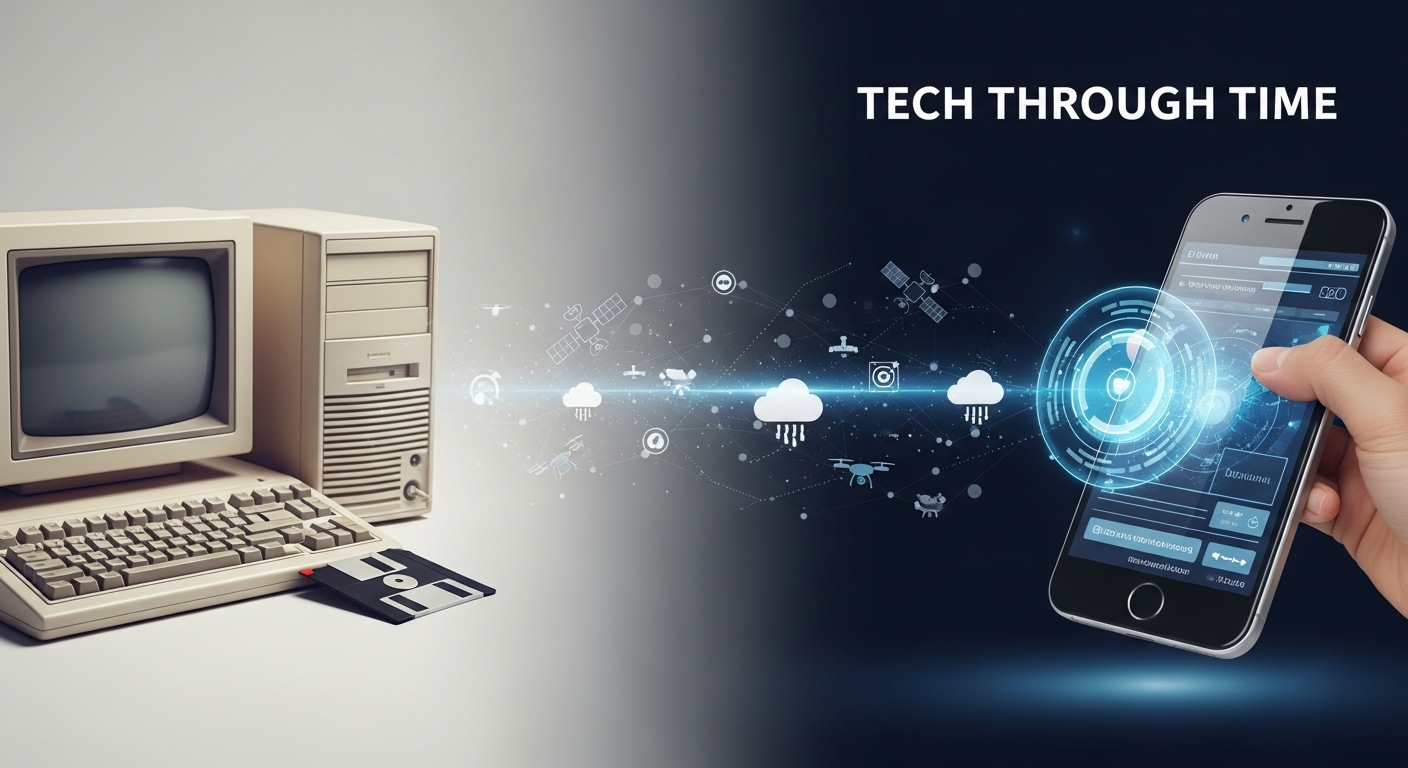Technology has become the backbone of modern civilization, permeating every aspect of life, from the way we work and communicate to how we interact with our surroundings and understand the world. With constant advancements and innovations, technology continues to evolve, transforming industries, creating new possibilities, and addressing some of the most pressing global challenges. The future of technology is not just about the gadgets we use, but about how these tools will reshape our lives, economies, and societies.
In this blog post, we will explore the exciting and rapidly changing landscape of technology. From artificial intelligence and quantum computing to biotechnology, renewable energy, and the Internet of Things (IoT), the future of technology holds immense promise and challenges. Let’s take a closer look at some of the most transformative technologies that will shape our world in the years to come.
Artificial Intelligence: The Intelligence of Machines
When we talk about the future of technology, artificial intelligence (AI) is arguably the most discussed and transformative field. AI is not just about machines doing tasks that humans can do, but about creating systems capable of learning, reasoning, and even making decisions on their own. The potential applications of AI are vast, and its impact on industries such as healthcare, finance, education, and entertainment is already being felt.
AI in Healthcare
One of the most promising applications of AI is in the field of healthcare. AI-powered systems are already being used to diagnose diseases, predict patient outcomes, and recommend treatments. For example, AI algorithms can analyze medical images—like X-rays, MRIs, and CT scans—with incredible accuracy, identifying early signs of diseases like cancer, heart disease, and neurological conditions. These systems can process vast amounts of data much faster than human doctors, leading to quicker diagnoses and more personalized treatment plans.
AI is also being used to enhance drug discovery. Traditionally, the process of developing new drugs takes years and involves extensive trial and error. However, AI can sift through vast amounts of molecular data, identifying potential drug candidates in a fraction of the time. This is revolutionizing how pharmaceutical companies approach the development of life-saving medications.
AI in Everyday Life
Beyond healthcare, AI is becoming increasingly integrated into our everyday lives. Virtual assistants like Siri, Alexa, and Google Assistant use AI to understand and respond to voice commands, helping us manage our schedules, play music, and control smart home devices. AI is also powering recommendation systems on platforms like Netflix and Amazon, suggesting movies, shows, and products based on our preferences and browsing behavior.
In the near future, we can expect AI to become even more pervasive in our lives, with intelligent systems that anticipate our needs, learn from our behavior, and offer tailored solutions. From personalized shopping experiences to autonomous vehicles, AI will play a central role in shaping the way we live and interact with the world around us.
Quantum Computing: The Dawn of a New Computing Era
While AI is transforming industries today, quantum computing promises to revolutionize the world of computing in the near future. Quantum computers operate on principles that are fundamentally different from classical computers, harnessing the strange properties of quantum mechanics to solve problems that would be impossible for traditional computers.
What is Quantum Computing?
At its core, quantum computing is based on quantum bits, or qubits, which can represent both 0 and 1 simultaneously, thanks to a phenomenon known as superposition. This allows quantum computers to process enormous amounts of data at once, vastly increasing their computational power. Additionally, qubits can be entangled, meaning the state of one qubit can be dependent on the state of another, even if they are physically separated. This phenomenon, known as quantum entanglement, allows quantum computers to perform complex calculations in parallel, exponentially speeding up problem-solving processes.
Potential Applications of Quantum Computing
Quantum computing holds immense potential for a wide range of industries. In fields like cryptography, quantum computers could break traditional encryption methods, leading to the development of more secure systems and algorithms. In drug discovery, quantum computers could simulate molecular interactions at an unprecedented scale, leading to breakthroughs in medicine and material science.
The financial industry stands to benefit from quantum computing as well. With its ability to process large datasets and solve complex optimization problems, quantum computers could transform areas like portfolio management, risk analysis, and fraud detection. Additionally, quantum computing has the potential to revolutionize artificial intelligence itself by enabling faster, more powerful machine learning algorithms.
While quantum computers are still in the early stages of development and face significant technical challenges, companies like IBM, Google, and Microsoft are already making strides in building practical quantum systems. The next decade may see quantum computing move from theory to reality, unlocking new frontiers in science and technology.
Biotechnology: Engineering Life for a Better Future
Biotechnology is another field poised to shape the future of technology. The ability to manipulate biological systems and organisms has opened up a new world of possibilities, from gene editing and synthetic biology to personalized medicine and regenerative therapies. As our understanding of biology advances, we are now at the cusp of a new era in which we can engineer life itself.
Gene Editing: The Promise of CRISPR
One of the most groundbreaking developments in biotechnology is gene editing, particularly through the CRISPR-Cas9 system. CRISPR allows scientists to make precise changes to the DNA of living organisms, opening the door to curing genetic diseases, enhancing crop yields, and even creating genetically modified organisms (GMOs) with specific traits.
Gene editing has already shown promise in treating genetic disorders such as sickle cell anemia and cystic fibrosis. Scientists are also exploring the potential of using CRISPR to create designer babies—children with specific traits or abilities. While this raises ethical questions, it is clear that gene editing has the potential to eradicate some of the most debilitating diseases known to humanity.
Synthetic Biology: Redesigning Life
Synthetic biology goes beyond gene editing to the creation of entirely new organisms or biological systems. Scientists in this field are working to design synthetic cells, bacteria, and even organs that can perform specific functions. This could lead to innovations in medicine, such as creating lab-grown organs for transplant or engineering bacteria to produce pharmaceuticals and biofuels.
One exciting area of synthetic biology is the development of lab-grown meat. By growing meat in bioreactors rather than raising animals, we can reduce the environmental impact of livestock farming while still providing a sustainable source of protein. This technology could help address food security issues and reduce the carbon footprint of agriculture.
Renewable Energy: Powering a Sustainable Future
As the world faces the dual challenges of climate change and energy demand, renewable energy technologies are playing a crucial role in shaping the future. Solar, wind, hydro, and geothermal energy are becoming increasingly cost-effective and efficient, allowing us to transition away from fossil fuels and toward a cleaner, more sustainable energy future.
The Rise of Solar Power
Solar energy has seen tremendous advancements in recent years, with solar panels becoming more efficient, durable, and affordable. New innovations in materials science, such as perovskite solar cells, promise even higher efficiencies and lower production costs. Additionally, solar power is becoming more accessible, with residential solar installations growing in popularity and utility-scale solar farms powering entire cities.
One of the most exciting developments in solar energy is the advent of solar storage technologies. Energy storage systems, such as advanced batteries, allow solar power to be stored during the day and used at night, making solar a more reliable and consistent energy source.
Wind and Hydropower: Complementing Solar
Wind energy is another rapidly growing renewable source. Offshore wind farms, in particular, have the potential to generate vast amounts of power, thanks to stronger and more consistent winds at sea. Advances in turbine technology and floating wind farms are making it possible to harness wind energy in locations that were previously unsuitable.
Hydropower, although one of the oldest forms of renewable energy, continues to evolve. Modern hydropower plants are more efficient and environmentally friendly, with innovations in micro-hydro systems and fish-friendly turbines ensuring that hydropower remains a viable source of renewable energy for the future.
The Internet of Things (IoT): Connecting the World
The Internet of Things (IoT) is another transformative technology that will continue to shape the future. IoT refers to the network of physical objects—such as devices, appliances, vehicles, and infrastructure—that are embedded with sensors and connected to the internet, allowing them to collect and exchange data.
Smart Homes and Cities
One of the most visible applications of IoT is in the creation of smart homes. Devices like smart thermostats, lighting systems, and security cameras can be controlled remotely through smartphones or voice assistants, offering convenience, energy savings, and improved safety. Additionally, IoT-powered devices can collect data about a home’s energy usage and optimize it, reducing the overall carbon footprint.
On a larger scale, IoT is driving the development of smart cities. By connecting infrastructure such as traffic lights, streetlights, and waste management systems to the internet, cities can optimize energy use, reduce traffic congestion, and improve public services. IoT can also play a crucial role in managing resources like water and electricity, helping to build more sustainable urban environments.
Industrial IoT: Revolutionizing Manufacturing
IoT is also transforming industries like manufacturing, agriculture, and logistics. In the manufacturing sector, IoT devices are being used for predictive maintenance, allowing companies to monitor equipment in real-time and predict when maintenance is needed. This reduces downtime and improves efficiency. In agriculture, IoT sensors are helping farmers monitor soil conditions, weather patterns, and crop health, leading to more efficient and sustainable farming practices.
Conclusion: The Boundless Possibilities of Technology
The future of technology is an exciting and transformative journey, one that promises to change how we live, work, and interact with the world. From AI and quantum computing to biotechnology, renewable energy, and IoT, the innovations on the horizon hold the potential to solve some of the most pressing challenges facing humanity. However, these advancements also raise important ethical, societal, and environmental questions that will need to be addressed as we move forward.
As we embrace these technologies, we must ensure that they are developed and deployed responsibly, with consideration for their impact on people, communities, and the planet. By doing so, we can harness the power of technology to create a brighter, more sustainable future for all. The possibilities are boundless, and the journey has only just begun.



